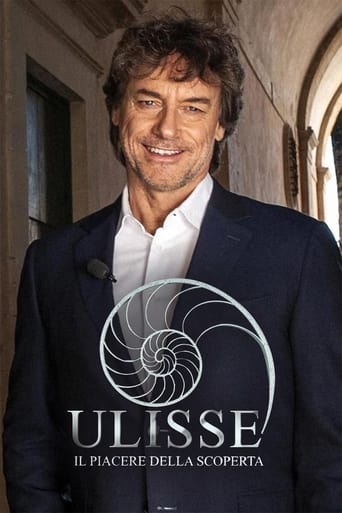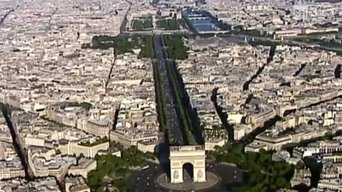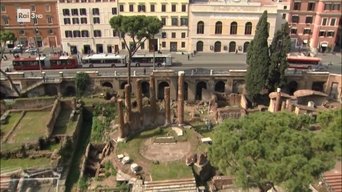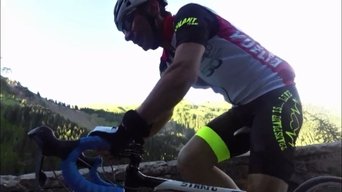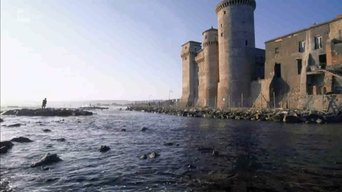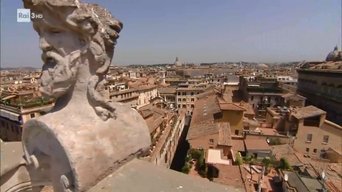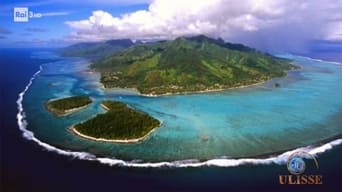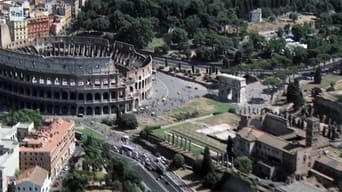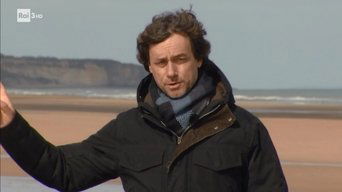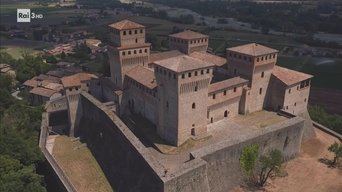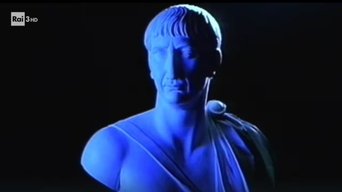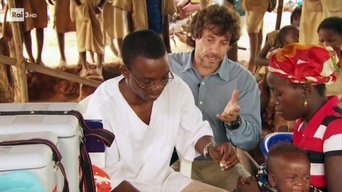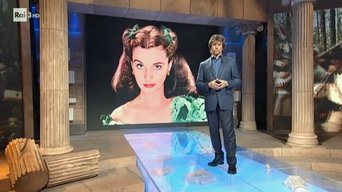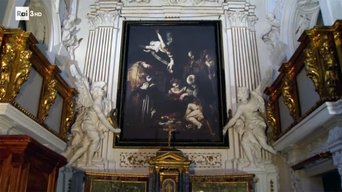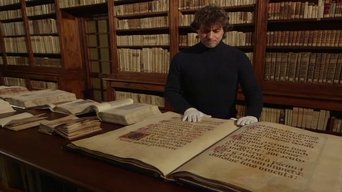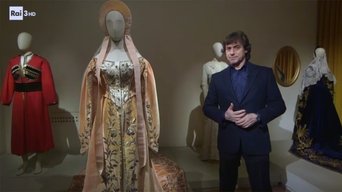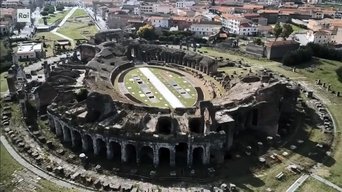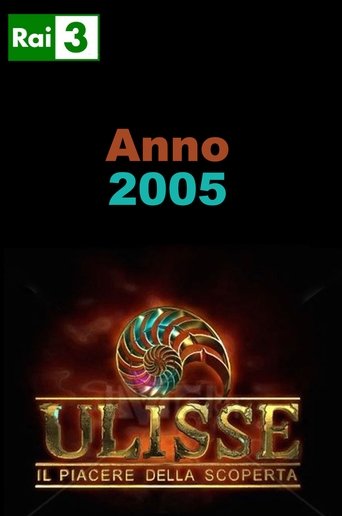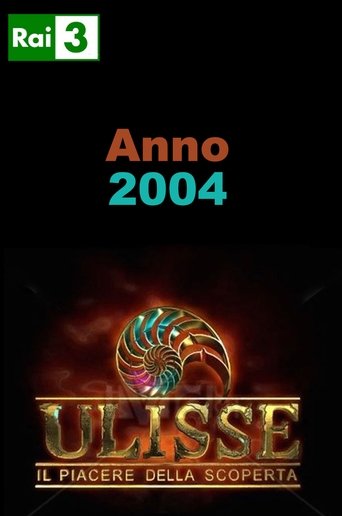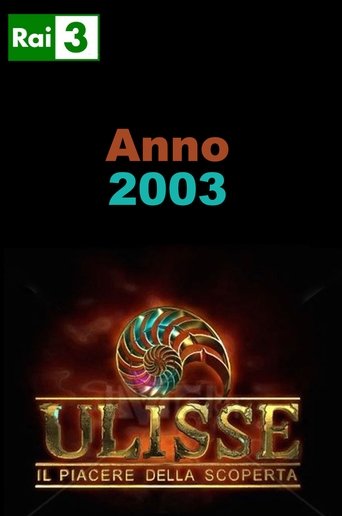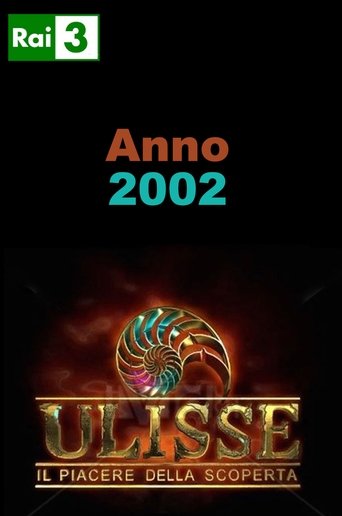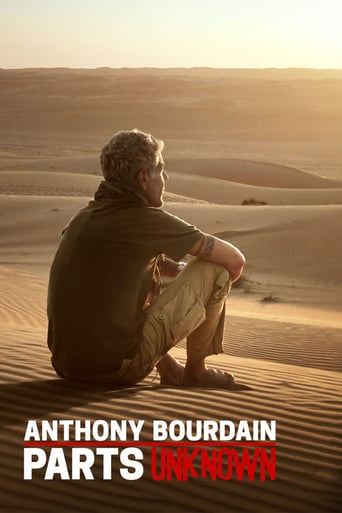Ulisse. Il piacere della scoperta Season 17
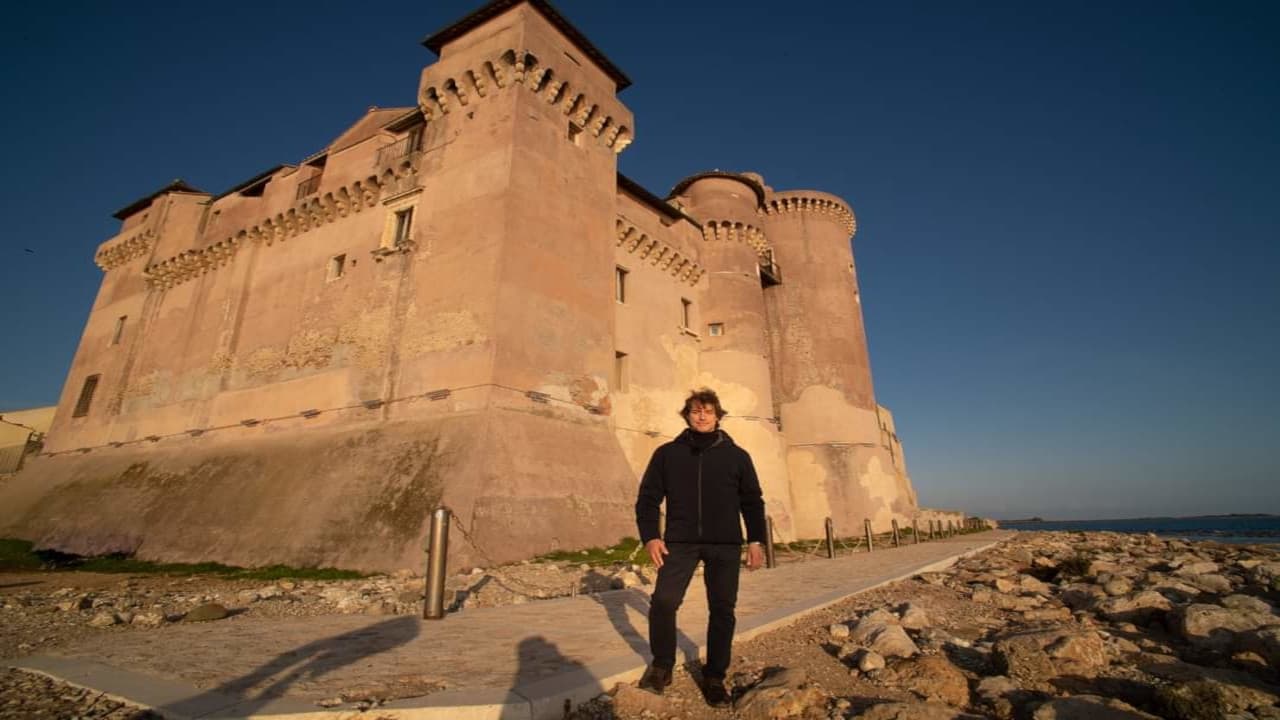
Alberto Angela leads the dissemination program dedicated to history, art and culture. A historical, archaeological, informative story, with the presence of some protagonists of the Italian cultural or artistic scene.
Watch NowWith 30 Day Free Trial!
Ulisse. Il piacere della scoperta
2001 / NR
Alberto Angela leads the dissemination program dedicated to history, art and culture. A historical, archaeological, informative story, with the presence of some protagonists of the Italian cultural or artistic scene.
Watch Trailer
Ulisse. Il piacere della scoperta Season 17 Full Episode Guide
Paris, its secrets and its wonders. The Bridges of Paris and the Seine have been declared a world heritage site by UNESCO. Alberto Angela, aboard a vintage boat, travels along the Seine, using the river as a journey through time. He explores Paris in various stages: from the top of the Arc de Triomphe, to the Eiffel Tower, to the towers of the spectacular Nôtre Dame Cathedral. The appointment with the Eiffel Tower is unmissable, as told by Alberto Angela in all its details, and the surprising transformations of Paris at the end of the nineteenth century: from the birth of the department stores to the many attractions of Montmartre, to the cafés of the Latin Quarter. And then the changes that occurred in the twentieth century: from Beaubourg to Défense.
Alberto Angela takes us on a grandiose journey into one of the most crucial periods in the history of Rome: the birth of the Empire. Through the images of the film "Il Destino di Roma", we get to know the protagonists of those years more closely. From Bruto and Cassio to Antonio and Cleopatra. It is a historical reconstruction, if you want a film, with real actors, but with places reconstructed on the computer.
We cannot remember the most intense period of our lives, that of the most surprising discoveries, of unstoppable progress, of dizzying goals. These are the first two years after birth, about 700 wonderful days that, even without remembering them, we sometimes partially relive as adults, observing a small human being growing up.
50 years after the event that marked the history of medicine, the program dedicates an episode to one of the most shocking medical achievements of the last century: that of allowing a person to live by removing their diseased heart and putting the heart of another in its place. Something that no one in the past could have even imagined and which was achieved in December 1967 by an unknown South African surgeon who later went down in history: his name was Christiaan Barnard. The program will tell his story, and above all the behind the scenes of the first heart transplant ever performed on a human being. We will follow the operation step by step thanks to a fascinating filmed reconstruction of Wall to Wall directed by Patrick Reams. we will also see original film documents, shot in Cape Town, with the protagonists of this great adventure: doctors and patients of the time. The stories of some Italian patients who live today with the heart of another person will also be told.
A long journey back almost two centuries, a period in which the sea was still an unexplored world and was believed to be inhabited by extraordinary creatures and populated with myths and legends. Alberto Angela will accompany spectators to discover one of the masterpieces of world literature: Moby Dick. The novel written by Herman Melville in 1851 is one of the most famous and read books in the world. Little known, however, is the fact that, to write Moby Dick, Melville was inspired by a true story: the sinking of the US whaler Essex in the Pacific, due to the attack of an enormous sperm whale.
A journey between the Renaissance, the 1600s, the 1700s and the entire 19th century. In this episode of Ulisse we will explore places such as Palazzo Farnese, Palazzo Barberini, Villa Medici, passing through Villa Torlonia, Villa Farnesina and finally the Casina del bel Breath in Villa Doria Pamphili. In each of these places you will find the wonders hidden in Raphael's frescoes, Bernini's staircases and Borromini's works. In fact, it is precisely through the explanation of these works that Alberto Angela will reveal to us the power games of papal Rome. Each noble family tried to extend its dominion over Rome through the election of one of its members to the office of pontiff. In fact, each pope then started works and commissions that brought masterpieces of all sorts to the capital.
"I only followed orders", is the typical excuse advanced by Nazi criminals. And Hermann Göring and Adolf Eichmann, two figures of the Nazi regime responsible for crimes against humanity, also justified themselves with this sentence. Alberto Angela, with the help of two dramas, reconstructs the personalities and history of the two Nazi hierarchs also through the story of the trials in which they were accused and which finally brought justice to millions of victims.
In a truly extraordinary journey, with Alberto Angela, "Ulisse" passes from one island to another: starting from the Isola Maggiore of Lake Trasimeno, the program tells the thousand stories of which the many islands on earth are the protagonists. born suddenly, disappeared slowly, changed over time due to natural events.
Alberto Angela takes us on a very special journey to discover the most famous monument of ancient Rome: the Colosseum. For almost two thousand years its mighty mass has stood out in the panorama of Rome, and even today this exceptional construction leaves millions of visitors amazed (over 6 million in 2016) from all over the world. For the preview with Ulisse we look out from the magnificent attic of the Amphitheater with its breathtaking view which will also be open to the public from early November. How was the Colosseo built and why? This is what we discover together with Alberto Angela who tells us the stories of the three great emperors who were decisive for the construction of this wonder of antiquity. Three names that still echo today in history books: Nerone, Vespasiano and Tito.
The most impressive military landing recorded in history: 160 thousand soldiers, 11 thousand planes and almost 7 thousand boats of all types. It's D-Day, the longest day. Thousands of young American, English and Canadian soldiers wrote one of the most important pages of the Second World War. While the pale light of dawn spread over the Channel, the largest amphibious invasion force ever assembled up to that moment lands on the coasts of Normandy: it is June 6, 1944. Alberto Angela, from the places of the landing on the coasts of Normandy, will reconstruct the moments crucial through exclusive testimonies of the last survivors. Ulisse reached these ex-boyfriends in their homes: in France, in England, in the United States but also in Germany, where Alberto Angela met, among others, the young German sentry who on the night of the operation, on the famous Pegasus Bridge, spotted the first allied soldiers and fired the first flare into the air.
The most impressive military landing recorded in history: 160 thousand soldiers, 11 thousand planes and almost 7 thousand boats of all types. It's D-Day, the longest day. Thousands of young American, English and Canadian soldiers wrote one of the most important pages of the Second World War. While the pale light of dawn spread over the Channel, the largest amphibious invasion force ever assembled up to that moment lands on the coasts of Normandy: it is June 6, 1944. Alberto Angela from the places of the landing on the coasts of Normandy will reconstruct the crucial moments of the D-Day through exclusive testimonies of the last survivors.
From the Castrum of the ancient Romans to the castles of the 17th century. From the first forms of defense and fortification such as the famous walls of Jericho, Troy and Mycenae to the sumptuous Castles of Sissi and Ludwig in Bavaria. Few know that Italy has over 20,000 sites including fortifications, defensive walls and castles. Ulisse, the pleasure of discovery accompanies you on a unique journey to discover this artistic, architectural and historical heritage, told through the stories, legendary or true, of the rich inhabitants who lived there over the various centuries both in Italy and in Europe. King Arthur, Paolo and Francesca, the Baroness of Carini, Mary Stuart, the Borgias, Sissi and Ludwig and many others.
Alberto Angela takes us on a journey to the borders of the Roman Empire to narrate the moment in which the latter reached the peak of power and expansion with the conquest of Dacia. An exciting story, which has changed the destiny of millions of people over the centuries, pointing the compass towards a specific era: that of Emperor Traiano, of whom this year marks the anniversary of his death which occurred 1900 years ago.
Invisible but very powerful, microorganisms have always been our life companions. Alberto Angela proposes a journey to discover infinitely small creatures, showing how our life, but sometimes also our death, depends on them. The journey of "Ulisse" begins in Benin, a very poor country which like many other places on the planet represents the "front line" of the fight against microbes and viruses. And international organizations operate here which have saved many children through vaccinations. But how and when did humanity begin to use vaccines? In "Ulysses", a documentary brings to life a "revolutionary" moment: the one in which Luis Pasteur tries the impossible to save the life of a child bitten by a dog suffering from rabies. An episode that will forever change not only the lives of the people involved but also our relationship with diseases. And, today, how can we protect ourselves from infections? What precautions to use? How effective are simple gestures like washing your hands?
This episode of "Ulisse: il piacere della scoperta" guides us through the 5 most dramatic years in the history of the United States of America; the years of the Civil War, of the free North against the slave South. A conflict that will cause more deaths than all the others ever fought by the United States combined, including World Wars I and II.
This episode of "Ulisse: il piacere della scoperta" is dedicated to the tragic news of recent months: the earthquake that tore through Italy last autumn/winter. Thanks to the Carabinieri's Cultural Heritage Protection Unit, we are witnessing the recovery of important works of art and the safeguarding of our historical and artistic heritage wounded and scarred by these catastrophic events of recent months.
One of the most famous paintings in the world is at the center of this fourth episode: the Mona Lisa. Who really was the Mona Lisa? Alberto Angela, from the places where Leonardo lived and painted his masterpieces, takes us on a journey through the history of art and, in front of the painting in the Louvre, makes us understand why it is the most famous painting in the world, the most reproduced, and what is so unique and special about this woman who has enchanted courts around the world for 6 centuries.
This episode of "Ulisse" follows the thread of the story of one of the most important Italian novels of all time: "The Name of the Rose". Who were the scribe monks? Why were they so fundamental in the transmission of our country's culture? And why did some books never reach us? Alberto Angela, from Subiaco, where Saint Benedict founded the famous convent, retraces the plot of the book by Umberto Eco, a worldwide publishing success, and the film by Jean Jacques Annaud with Sean Connery as the protagonist. What was daily life like inside the Abbeys in the Late Middle Ages? What role did these buildings have, which at the time functioned like real companies? There is also talk of forbidden books and the inquisition, with a mystery to be solved in the background.
This episode of "Ulisse" makes us relive the glory and fall of one of the most sumptuous courts of the 19th century: that of the Romanovs. Alberto Angela, in the Royal Palace of Venaria Reale, in Piedmont, talks about this court that reigned over an immense territory without however managing to govern it, closed in its own splendor and impenetrable to the anger and hunger of its people, which would open the doors to the influence of a dubious and discussed character, and still not definitively deciphered: Rasputin. A name inextricably linked to the Romanovs: no one was ever so skilled at bewitching men and women of power without the help of a noble title and with a very limited education. Who was? A healer? A boaster? And what were the relations with the imperial family? Thanks to historical re-enactments and a documentary we tell the parable of a family and an Empire, until the dawn of the First World War.
The story of the Roman slave Spartacus: the indomitable fighter who decided to rebel against his destiny as a slave is at the center of this episode of "Ulisse: il piacere della scoperta". Alberto Angela recounts the rise of this warrior from Thrace who, endowed with immense physical strength and enlisted as a gladiator, organized a revolt against Rome destined to remain, due to his greatness and violence, in history. From the amphitheater of Santa Maria Capua Vetere, in the province of Caserta, a stadium capable of accommodating 40 thousand people, we delve into the history of the Roman arenas, places of tragedy and pain but which for centuries served as the backdrop to the most loved and appreciated shows of the whole Mediterranean: the gladiatorial games.
Free Trial Channels
Seasons


